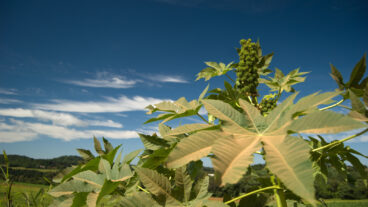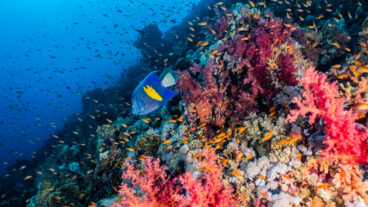With the list of Brazil’s hot issues revealing water, energy, clean tech, medical equipment and communications as top priorities, Israel has much to offer the largest country in South America.

Water-rich Brazil and water-poor Israel have found that they’re a good fit, with each country’s handicaps and blessings contributing to the cooperation between them. The two countries have embarked on a series of water negotiations so that Brazil can better manage its resources, and Israel can do business selling one of its few natural resources: Ingenuity in water technology.
Brazil is the most water-rich country in the world, owning an estimated 12 percent of the world’s freshwater resources, most of it in the Amazon Basin. However, despite its abundance of water there are areas in the country, mainly in the northeast, where water stores are scarce. In major cities like Sao Paolo, the largest in Brazil and the seventh largest in the world, only 70 percent of the sewage is treated, while the rest flows into rivers and the sea. In rural areas the sewage situation is much grimmer.
Aware of Israel’s reputation as a water technologies enabler, Brazilian cities, companies, and even the planning committee for the Olympics Rio 2016 Summer Games, are looking to Israel for help to combat water loss through leaky pipes, provide better water treatment, and of course, new solutions for water management in agriculture and irrigation technologies.
Just back from a mission to Israel, where he escorted the Brazilian president Luiz Inácio Lula da Silva and an entourage of about 80 high-level business people, Roy Nir an Israeli government commercial attaché based in Sao Paulo, Brazil, says that following the Israeli WATEC convention in November some serious agreements and business negotiations are now being signed between Israel and Brazil. “They know about Israeli water technologies, and they see Israel as a benchmark,” he says.
What does Israel have in terms of water tech that Brazil needs? “Israel has almost everything,” Nir tells ISRAEL21c, just two hours after returning to Brazil from Israel. “Water loss is high in Brazil; there is water scarcity. It’s amazing – there are some areas in Brazil in the northeast that suffer from water scarcity, the same problems that Israel suffers from. They need our technology in irrigation, desalination, in water re-use. This is all interesting for them. They re-use less than one percent of their water,” he says.
A wee to save water
Brazil, the largest South American country, is quickly gaining a reputation for its focus on environmental issues. Despite being an underdeveloped country in many ways, cities like Curitiba have made massive steps to ensure infrastructure like public transportation for its people. And environmentalists the world over are lauding Brazil for its achievements in the development of biofuel.
A new campaign in the north, which Nir has heard about, and makes him laugh, is encouraging Brazilians to urinate in the shower to save water. But in all seriousness, the Brazilian government and business community is taking steps in the right direction. And working with the experts and companies from Israel will help them to meet better water management goals.
As the country invests resources in public education campaigns to save water, Brazil knows that it’s time to invest in improvements in infrastructure as well. At the WATEC conference it was noted that the 2016 Olympics, with its anticipated influx of tourists and athletes, would cause serious damage to the country’s already overloaded sewage system.
A delegation visiting Israel in November to investigate solutions included the Governor of Baja, the Deputy Governor of Sao Paolo and 10 water ministers from various districts as well as representatives from the large water companies in Brazil. On their itinerary was a visit to the water desalination plant in Ashkelon, one of the largest of its kind in the world.
Oded Distel, one of the WATEC Exhibition organizers, says that Brazil is pumping water from sources that harm the Atlantic rainforest. To help the Brazilians, in the framework of the recent WATEC convention, Israel’s Ministry of Industry, Trade and Labor set up a special panel to discuss the problems and help the Brazilians to find solutions. Prior to WATEC, Nir brought a summer delegation to Israel that included Sao Paulo’s water company SABESP, the largest water company in Brazil and the fifth largest in the world.
Water agreements with Israel in the works
The results of the delegations have led to some promising agreements, such as the one signed by SABESP and Israel’s national water company, the government-owned Mekorot. “They signed an agreement, a framework agreement in various fields,” says Nir. “Now they need to make it concrete.”
SABESP is also in talks with Israeli water companies including Aqwise, A.R.I., Miya and Arad Technologies. Arad already has a distributor and local partner in place in Brazil and the water metering company that is already working in the US, is hoping to work with the Brazilian market as well. Israel’s Bermad has been in Brazil for a number of years, says Nir, while the water saving company Miya has just purchased its first Brazilian company, BBL.
According to Israel National News, Israel wants to deepen its ties with Brazil. Trade with the South American company amounted to almost $1 billion in 2009, a figure that had dropped by 39% from 2008. Largely based on food product imports and chemicals exports, Israel wants to broaden its trade.
“I was with the Brazilian president, as well as the 80 business people and industrialists that came with him. We had roundtable discussions with Israeli businesses and came out with lots of fruitful meetings,” Nir tells ISRAEL21c.
“The hot issues for Brazil are energy and clean tech, and after that it would be medical equipment and communications,” all areas where Israel and Brazil can fit, says Nir. “We had some very good meetings with the companies and at the government level and discussed plans for the near future. There will be cooperation,” he concludes.












